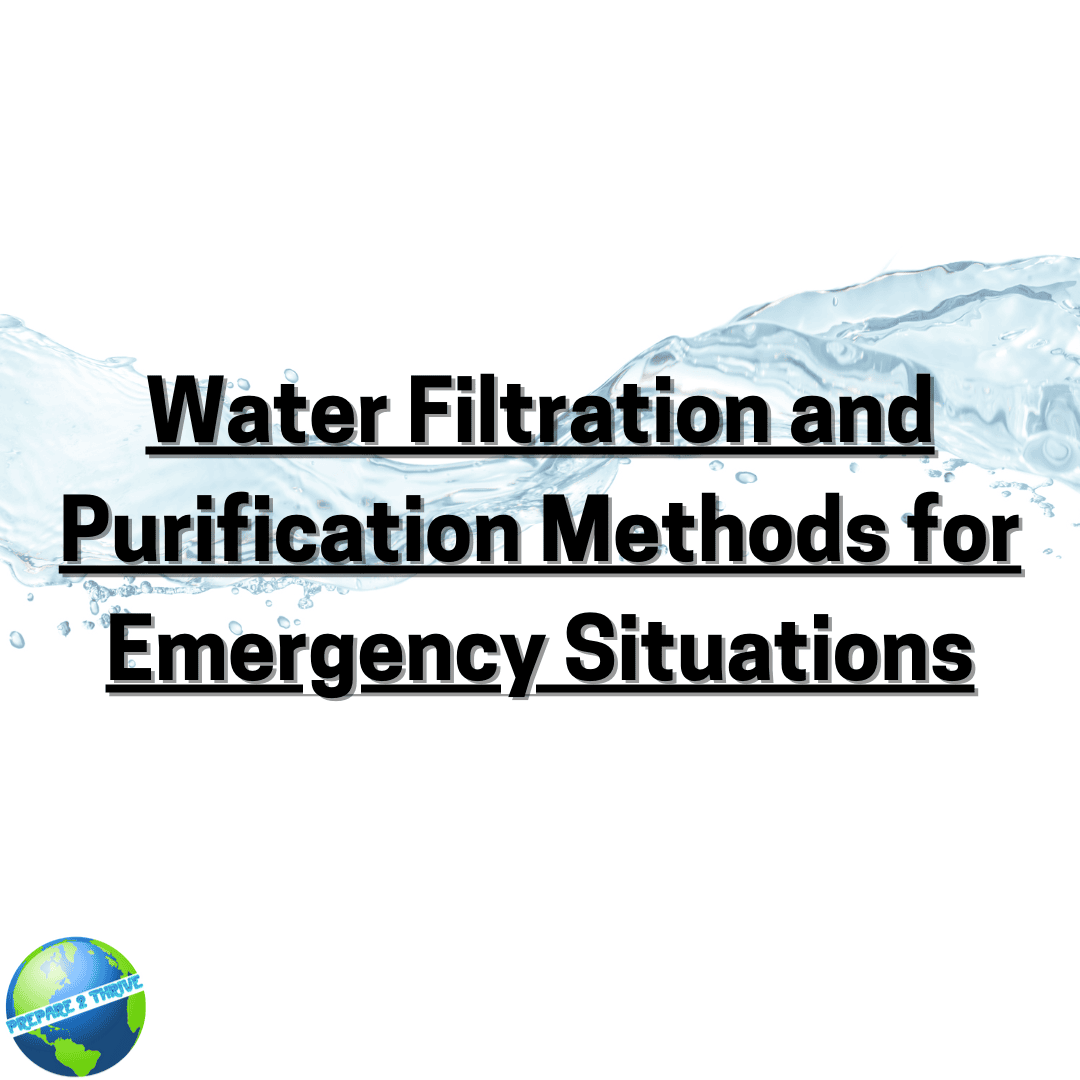In emergency situations, access to clean and safe drinking water becomes a top priority. Natural disasters, such as earthquakes or hurricanes, can disrupt water supplies, leaving individuals without a reliable source of potable water. That's why understanding different water filtration and purification methods is crucial for preppers. This article will explore various water filtration and purification methods that can be employed in emergency situations, ensuring that you have access to clean drinking water when it's needed the most.
1. Boiling Water
Boiling water is one of the simplest and oldest methods of water purification. By bringing water to a rolling boil for at least one minute (or three minutes at higher altitudes), you can kill most microorganisms and pathogens that cause waterborne illnesses. Boiling is effective against bacteria, viruses, and parasites. However, boiling does not remove chemical contaminants or impurities.
2. Water Filtration Devices
Water filtration devices are designed to remove impurities and contaminants from water. There are various types of water filters available, including portable water filters, gravity filters, and pump filters. These filters utilize physical barriers, such as activated carbon or ceramic materials, to trap sediment, bacteria, protozoa, and some viruses. It's important to choose water filters that are specifically designed for emergency situations and can effectively remove a wide range of contaminants.
3. Water Purification Tablets
Water purification tablets are a convenient and portable method for treating water in emergency situations. These tablets typically contain chemicals such as chlorine dioxide or iodine, which are effective in killing harmful microorganisms. Simply follow the instructions on the packaging to add the tablets to the water and wait for the specified time for the purification process to complete. However, note that water purification tablets may not be effective against certain types of parasites or chemical contaminants.
4. Chemical Disinfection
In addition to water purification tablets, there are other chemical disinfection methods that can be used in emergency situations. Chlorine bleach, when used properly, can effectively kill most microorganisms in water. It's important to use unscented bleach without any additional additives or perfumes. Follow the instructions provided to determine the appropriate amount of bleach to add based on the volume of water being treated. After adding bleach, allow the water to stand for 30 minutes before consuming.
5. Ultraviolet (UV) Water Purifiers
UV water purifiers use ultraviolet light to destroy bacteria, viruses, and other microorganisms present in water. These portable devices emit UV rays that penetrate the cells of microorganisms, rendering them inactive and unable to reproduce. UV water purifiers are effective against a wide range of pathogens and do not require the use of chemicals. However, they may not remove sediment or chemical contaminants, so it's advisable to pre-filter water before using a UV purifier.
6. Reverse Osmosis (RO) Watermakers
In marine or boating emergency situations where access to freshwater sources is limited, marine reverse osmosis (RO) watermakers can be a valuable asset. These devices utilize advanced filtration technology to remove salt, minerals, and other impurities from seawater, making it safe for drinking and cooking. Marine RO watermakers are specifically designed for marine applications and are often compact and easy to install on boats or yachts. They use a semi-permeable membrane to separate salt and impurities from water, producing clean and fresh drinking water. It's important to follow the manufacturer's instructions for proper installation, maintenance, and operation of marine RO watermakers.
Conclusion
Having access to clean and safe drinking water is essential during emergency situations. Boiling water, water filtration devices, water purification tablets, chemical disinfection methods, UV water purifiers, and marine RO watermakers are all effective options for water treatment in emergency scenarios. Depending on the situation and available resources, preppers should consider employing multiple methods to ensure a reliable supply of clean drinking water. Remember to thoroughly research and understand the usage and limitations of each method to make informed decisions when it comes to water filtration and purification.
Hashtags: #WaterFiltration #WaterPurification #EmergencyWater #SafeDrinkingWater #WaterTreatment




